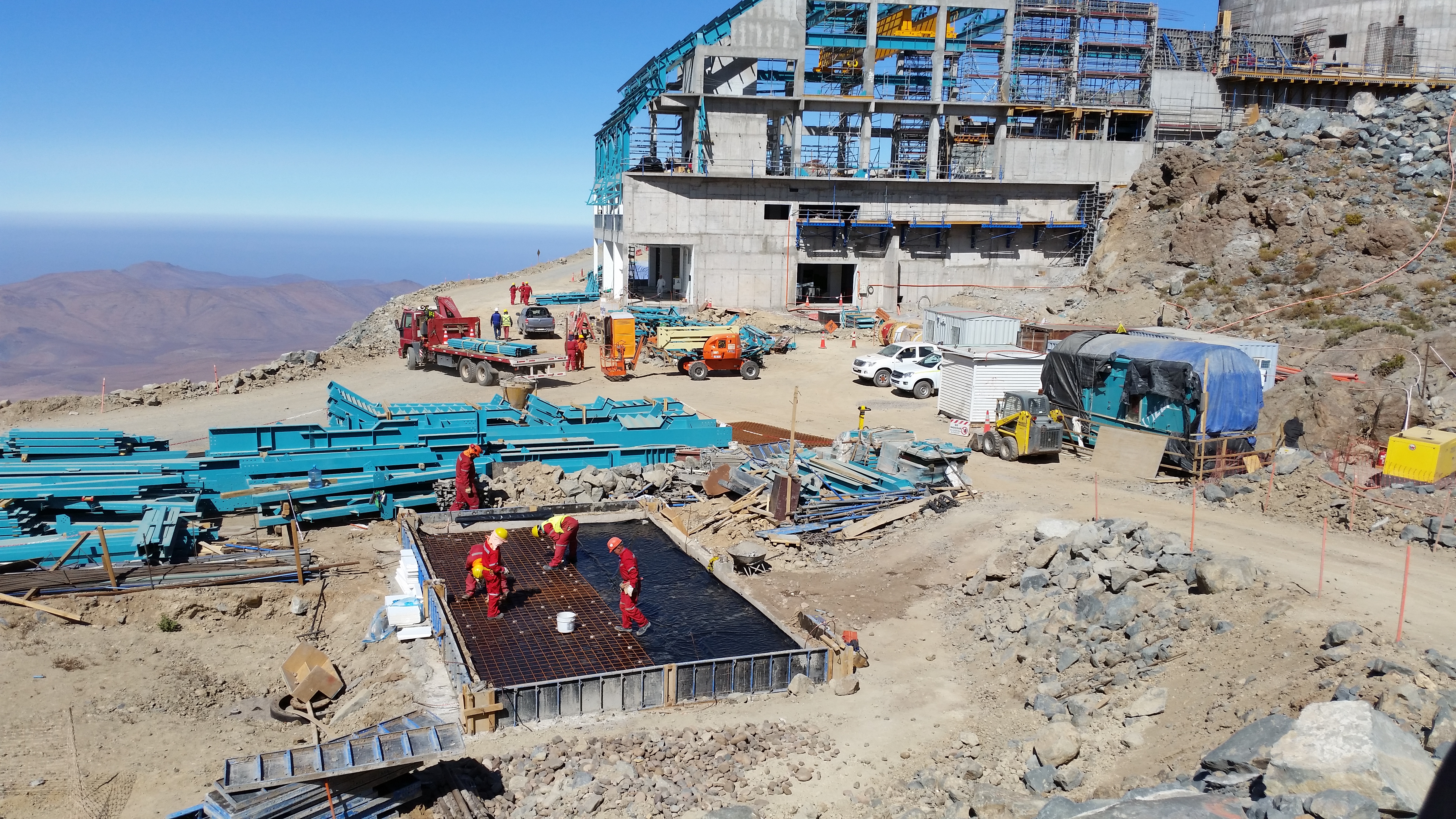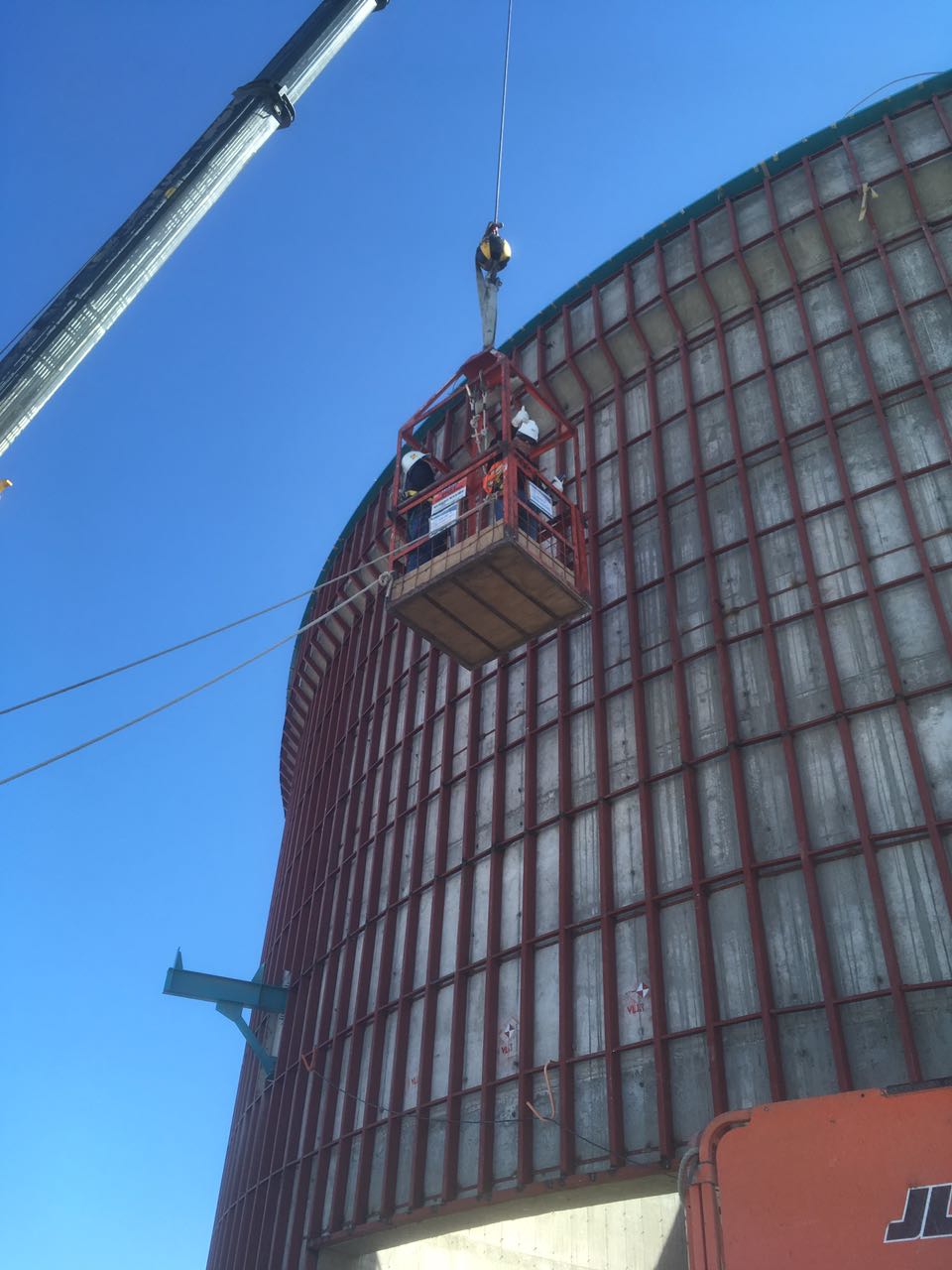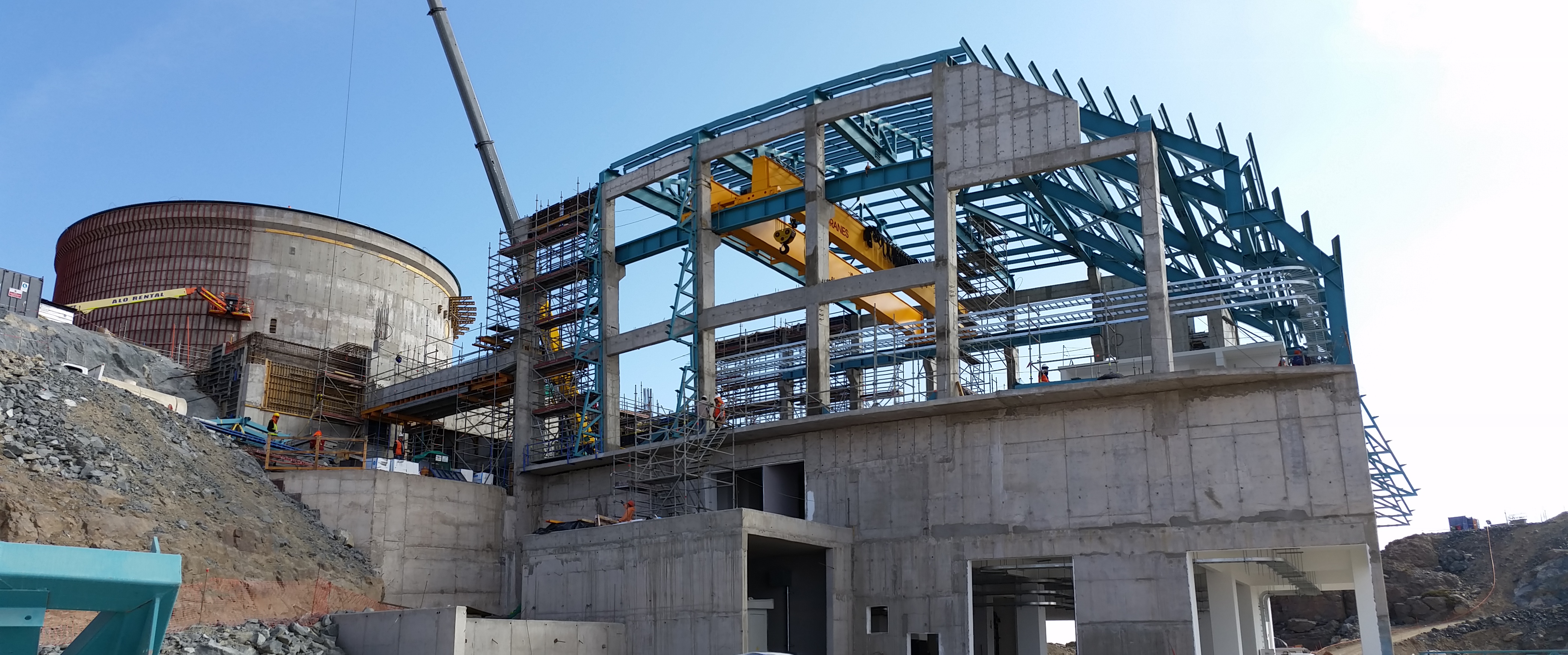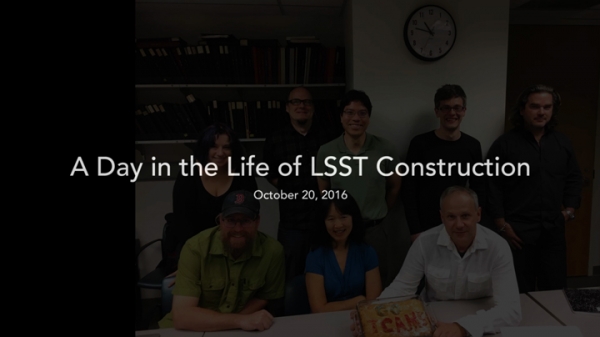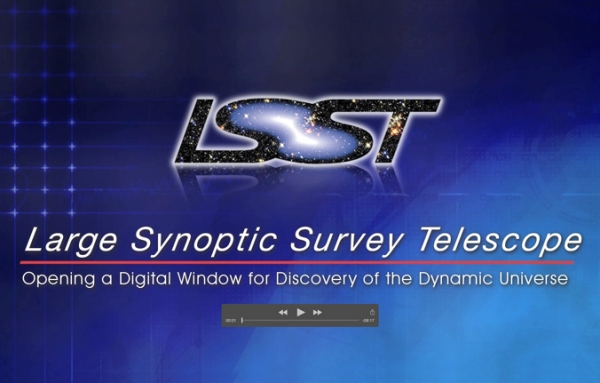The AURA Management Council for LSST (AMCL) met this week in Tucson. The AMCL meets three times a year, and is AURA's oversight and advocacy committee for LSST. Steve Kahn, Beth Willman, Victor Krabbendam, and Chuck Claver presented on topics related to LSST construction progress, commissioning planning, and operations planning.
LSST Systems Engineers Kathryn Wesson and Brian Selvy attended the NASA JPL Model Based Systems Engineering (MBSE) Symposium and Workshop and then the 2017 INCOSE International Workshop last week. They had the opportunity to collaborate with systems engineers from NASA JPL, TMT, and GMT, and were able to interact with vendors of software tools used by LSST such as MagicDraw and Syndeia. The systems engineers from GMT, TMT, and LSST agreed to continue collaborating on developing modeling capabilities of mutual benefit to all projects, with the long term goal of developing a reference model for large, ground based optical telescopes. This longer term goal has sparked interest from senior leadership at the Object Management Group (OMG) – the standards organization in this area.
In Optics news, production of the camera lenses is well underway at Arizona Optical Systems. The current status is as follows: The L2 Surface 2 polishing and initial figuring is complete. Grinding of L2 Surface 1 begins next week. Similarly, the L1 Surface 2 polishing and initial figuring is complete with grinding of L1 Surface 1 beginning next week. All in on schedule for the Optics Test Readiness Review set for February 28.
UW Postdoc Meredith Rawls was one of the Top 10 competitors in last week's Science Communication Contest held as part of Science Talk Northwest in Portland, Oregon. Contestants had three minutes to present their research or a related topic for a broad, non-scientific audience. Meredith's talk presented a brief overview of the scale, scope, and software behind LSST. The conference brought together a variety of scientists, science communicators, journalists, and students to learn about and practice effective science communication. A rough transcript of Meredith's presentation is available on her personal blog here, and a video will be added at the same link once it is available from conference organizers.
Construction is progressing quickly on Cerro Pachón, not only on the main LSST Facility Building but also on the concrete foundation for the Auxiliary Telescope. This smaller telescope will measure atmospheric conditions at the site, information necessary to calibrate the LSST data throughout the survey. [Read More]
CORPORATION NEWS
At the February 3rd Meeting of the LSSTC Board, seven new International Contributors (IC) were admitted, bringing the total number of ICs to 30, representing 20 different countries. An LSSTC IC agrees to share in the annual operating costs of the LSST in exchange for data rights during operations and commissioning. The newest International Contributors are:
- National Center for Nuclear Research (NCBJ) [Poland]
- Department of Astronomy, Stockholm University (SU ASTRONOMY) [Sweden]
- Astronomisches Rechen-Institut, Zentrum für Astronomie de Universität Heidelberg (ARI/ZAH) [Germany]
- Instrumentcenter for Danish Astrophysics And Department of Physics and Astronomy, Aarhus University (AU) and Neils Bohr Institute (NBI) [Denmark]
- Observatorio Astronómico de Córdoba (OAC) Universidad Nacional de Córdoba (UNC) and the Instituto de Astronomica Teórica y Experimental (IATE) UNC – CONICET (OAC-IATE) [Argentina]
- Leibniz-Institut für Astrophysik Potsdam (AIP) [Germany]
- Deutsches Elektronen-Synchrotron (DESY) [Germany]
PERSONNEL NEWS
Krzystof (Chris) Suberlak joined the LSST science verification group at the University of Washington (UW). Chris is a graduate student at UW and will work with Mario Juric, Zeljko Ivezic and the Science User Interface team at IPAC on the characterization of the functionality of a prototype Data Access Center (PDAC). Chris is experienced with SDSS Stripe 82 data that is made available via PDAC, and will repeat some of his previous analysis work using PDAC tools.
Joachim Moeyens has also joined the LSST DM group at the University of Washington (UW). Joachim is a graduate student at UW and will work with Lynne Jones, Mario Juric, and others on improvements to the Moving Objects Processing Software. Joachim has already contributed to the recent paper on LSST capability for discovering near-Earth asteroids (LSST PUB-39).
Dr. Eric Bellm has joined LSST as the Level 1 Science Lead for Data Management, starting February 1, 2017. He will join the Department of Astronomy at the University of Washington as a Research Professor. Eric is presently the Project Scientist for the Zwicky Transient Facility (ZTF) project at Caltech. Eric's research interests span a number of topics, including compact binaries and GRBs. His extensive background in time domain surveys as well as instrumentation will make a tremendous addition to an already strong team at UW and LSST.
Tim Morton has joined the LSST Data Management team as part of the Data Release Production group based in Princeton. He will contribute to the development and testing of the LSST science pipelines. Before joining LSST, Tim was an Associate Research Scholar at Princeton, working on exoplanet demographics using the Kepler spacecraft. Tim was lead author of the May 2016 paper describing the detection of 1,284 new planets with Kepler, the largest single announcement of planets to date. [NASA Press Release]
UPCOMING MEETINGS with LSST INVOLVEMENT
(those with asterisk* are LSSTC funded):
2017 | |
February 2 – 3 | AURA Management Council for LSST (AMCL) Meeting, Tucson, AZ |
February 13 - 17 | DESC Meeting, Dark Energy School, and Hack Day*, SLAC National Accelerator Lab |
February 27 – March 2 | Detecting the Unexpected: Discovery in the Era of Astronomically Big Data*, Location TDB |
March 6 - 8 | LSST Joint Technical Meeting, Glendale, CA |
March 13 - 15 | Blind Analysis in High-Stakes Survey Science: When, Why, and How? *
SLAC; Menlo Park, CA |
March 20 – 23 | ASTRO: Time Series Analysis for Synoptic Surveys and Gravitational Wave
Astronomy, International Center for Theoretical Sciences (ICTS), Bengaluru, India |
April 3 - 5 | LSSTC F2F Board Meeting and Hill Visits, Washington, DC |
April 6 & 7 | AURA Management Council for LSST (AMCL) Meeting, Washington, DC |
April 3-7 | LSST DESC Hack Week *, Fermi National Accelerator Laboratory |
May 1 – 3 | NSF Large Facilities Workshop, Baton Rouge and Livingston, LA |
May 1 – 5 | AURA Board and Member Representatives Annual Meeting, Tucson, AZ |
May 22 – 25 | Infrastructure for Time Domain Science in the Era of LSST, Tucson, AZ |
May 31 - June 2 | Supernovae: The LSST Revolution Workshop *, Northwestern University, Evanston, IL |
June 12 – 16 | Getting Ready for Doing Science with LSST Data,* IN2P3 Computing Center, Lyon, France |
July 10 - 14 | DESC Meeting, Dark Energy School, and Hack Day*, Brookhaven National Lab |
August 14 – 18 | LSST 2017 Project & Community Workshop, Tucson, AZ |
November 7 – 9 | AURA Workforce & Diversity Committee, La Serena, Chile |
Noticias del Proyecto
El Consejo de Administración de AURA para LSST (AMCL) se reunió esta semana en Tucson. La AMCL se reúne tres veces al año, y es el comité supervisión y apoyo de AURA para LSST. Steve Kahn, Beth Willman, Victor Krabbendam y Chuck Claver presentaron temas relacionados con el progreso de la construcción de LSST, planificación de puesta en marcha y planificación de operaciones.
Los ingenieros de sistemas de LSST Kathryn Wesson y Brian Selvy asistieron al Simposio y Taller de NASA JPL Sistemas Basados en Modelos de Ingeniería (MBSE) y luego al Taller Internacional INCOSE 2017 la semana pasada. Ellos tuvieron la oportunidad de colaborar con ingenieros de sistemas de NASA JPL, TMT, y GMT, y pudieron interactuar con proveedores de herramientas de software utilizadas por LSST como MagicDraw y Syndeia. Los ingenieros de sistemas de GMT, TMT y LSST acordaron continuar colaborando en el desarrollo de capacidades de modelado de beneficio para todos los proyectos, con el objetivo a largo plazo de desarrollar un modelo de referencia para los grandes telescopios ópticos terrestres. Este objetivo a largo plazo ha suscitado el interés de altos liderazgos en el Grupo de Gestión de Objetos (OMG) - la organización de estándares en esta área.
En noticias Ópticas, la producción de los lentes de la cámara está bien encaminada en Arizona Optical Systems. La situación actual es la siguiente: El pulido del L2 superficie 2 y los cálculos iniciales están completos. El pulido del L2 superficie 1 comienza la próxima semana. Asimismo, el pulido de la superficie del L1 superficie 2 y cálculos iniciales se completan con el rectificado del L1 superficie 1 a partir de la próxima semana. Todo dentro del calendario para la revisión de la preparación de la prueba óptica fijada para el 28 de Febrero.
UW Postdoc Meredith Rawls fue una de las 10 competidores en Concurso de Ciencias de la comunicación la semana pasada como parte del Science Talk Northwest en Portland, Oregon. Los concursantes tenían tres minutos para presentar sus trabajos de investigación o un tema relacionado a una amplia audiencia no científica. La charla de Meredith presentó un breve panorama general de la magnitud, el alcance y el software detrás de LSST. La conferencia reunió a una serie de científicos, comunicadores de la ciencia, periodistas y estudiantes para aprender acerca de la comunicación de la ciencia y la práctica efectiva. Una transcripción aproximada de la presentación de Meredith está disponible en su blog personal aquí here, y un vídeo se añadirá al mismo vínculo una vez que esté disponible a partir de los organizadores de la conferencia.
La construcción está avanzando rápidamente en Cerro Pachón, no sólo en las instalaciones principales de LSST, sino también en la cimentación de hormigón para el Telescopio Auxiliar. Este telescopio más pequeño va a medir las condiciones atmosféricas en el sitio, la información necesaria para calibrar datos de LSST a lo largo del estudio. [Leer más]
Noticias de la Corporación
El 3 de febrero en la reunión de la Junta LSSTC, siete nuevos Contribuidores Internacionales International Contributors (IC) fueron admitidos, elevando el número total de CIs a 30, representando a 20 países diferentes. Un LSSTC IC se compromete a compartir los costos operativos anuales de LSST a cambio de derechos a datos durante las operaciones y la puesta en marcha. Los contribuyentes internacionales más recientes son:
- Centro Nacional de Investigaciones Nucleares (NCBJ) [Polonia]
- Departamento de Astronomía, Universidad de Estocolmo (SU ASTRONOMY) [Suecia]
- Astronomisches Rechen-Institut, Zentrum für Astronomie de Universität Heidelberg (IRA/ZAH) [Alemania]
- Instrumentcenter para Astrofísica y Departamento de Física y Astronomía de la Universidad de Aarhus Danés (AU) e InstituteNeils Bohr (NBI) [Dinamarca]
- Observatorio Astronómico de Córdoba (OAC) Universidad Nacional de Córdoba (UNC) y el Instituto de Astronomica teórica y experimental (IATE) UNC - CONICET (ACO-IATE) [Argentina]
- Leibniz-Institut für Astrophysik Potsdam (AIP) [Alemania]
- Deutsches Elektronen-Synchrotron (DESY) [Alemania]
Noticias de Personal
Krzystof (Chris) Suberlak se unió al grupo de verificación de la ciencia de LSST en la Universidad de Washington (UW). Chris es un estudiante de postgrado de UW y trabajará con Mario Juric, Zeljko Ivezic y el equipo de interfaz de usuario de la ciencia en el IPAC en la caracterización de la funcionalidad de un prototipo de centro de acceso a datos (PDAC). Chris tiene experiencia con datos de SDSS Stripe 82 que están disponibles a través de PDAC, y repetirá algunos de sus anteriores trabajos de análisis utilizando herramientas de PDAC.
Joachim Moeyens también se ha sumado al grupo de DM de LSST en la Universidad de Washington (UW). Joachim es un estudiante graduado en UW y trabajará con Lynne Jones, Mario Juric, y otros sobre las mejoras del Software de procesamiento de objetos en movimiento. Joachim ya ha contribuido al reciente documento sobre la capacidad de LSST para descubrir los asteroides cercanos a la Tierra (LSST PUB-39).
El Dr. Eric Bellm ha sumado como líder de Ciencias nivel 1 para Gestión de Datos de LSST, empezando el 1 de febrero. 2017. Se unirá al Departamento de Astronomía de la Universidad de Washington como Profesor Investigador. Eric es actualmente el científico del proyecto de la planta (ZTF Zwicky transitoria) proyecto de Caltech. Los intereses de investigación de Eric abarcan una serie de temas, incluyendo binarios compactos y GRVs. Su amplia experiencia en estudios del dominio del tiempo, así como la instrumentación hará una gran adición a un ya fuerte equipo de UW y LSST.
Tim Morton se ha unido al equipo de Gestión de Datos de LSST como parte del Grupo de Producción de Liberación de Datos, con sede en Princeton. Él va a contribuir con el desarrollo y las pruebas de los ductos de ciencia LSST. Antes de unirse a LSST, Tim fue un Investigador Asociado en Princeton, trabajando en demografía de exoplanetas usando la nave espacial Kepler. Tim fue el autor principal del documento de mayo 2016, en el que se describía la detección de 1.284 nuevos planetas con Kepler, el mayor anuncio de planetas hasta la fecha. [NASA Press Release]
Próximas reuniones con participación LSST
(aquellos con un asterisco* son financiados por LSSTC):
2017 | |
Febrero 2-3 | AURA Management Council for LSST (AMCL) Meeting, Tucson, AZ |
Febrero 13-17 | DESC Meeting, Dark Energy School, and Hack Day*, Laboratorio Nacional de Acelerador SLAC |
Febrero 27-Marzo 2 | Detecting the Unexpected: Discovery in the Era of Astronomically Big Data*, Ubicacion por Definir |
Marzo 6-8 | LSST Joint Technical Meeting, IPAC, Pasadena, CA |
Marzo 13-15 | Blind Analysis in High-Stakes Survey Science: When, Why, and How? *
SLAC; Menlo Park, CA |
Marzo 20-23 | ASTRO: Time Series Analysis for Synoptic Surveys and Gravitational Wave
Astronomy, International Center for Theoretical Sciences (ICTS), Bengaluru, India |
Abril 3-5 | Reunion Junta LSSTC F2F y Hill Visits, Washington, DC |
Abril 6 & 7 | Reunión Consejo de Gerencia AURA para LSST (AMCL), Washington, DC |
Abril 3-7 | LSST DESC Hack Week*, Laboratorio Nacional de Acelerador Fermi |
Mayo 1-3 | Taller NSF Large Facilities, Baton Rouge and Livingston, LA |
Mayo 1-5 | Reunion Anual de la Junta de AURA y Miembros Representantes, Tucson, AZ |
Mayo 22-25 | Infrastructure for Time Domain Science in the Era of LSST, Tucson, AZ |
Mayo 31-Junio 2 | Supernovae Workshop *, Northwestern University, IL |
Junio 12-16 | Getting Ready for Doing Science with LSST Data, Lyon, France |
Julio 10-14 | DESC Meeting, Dark Energy School, and Hack Day*, Brookhaven National Lab |
Agosto 14-18 | LSST 2017 Project & Community Workshop, Tucson, AZ |
Noviembre 7-9 | AURA Workforce & Diversity Committee, La Serena, Chile |


